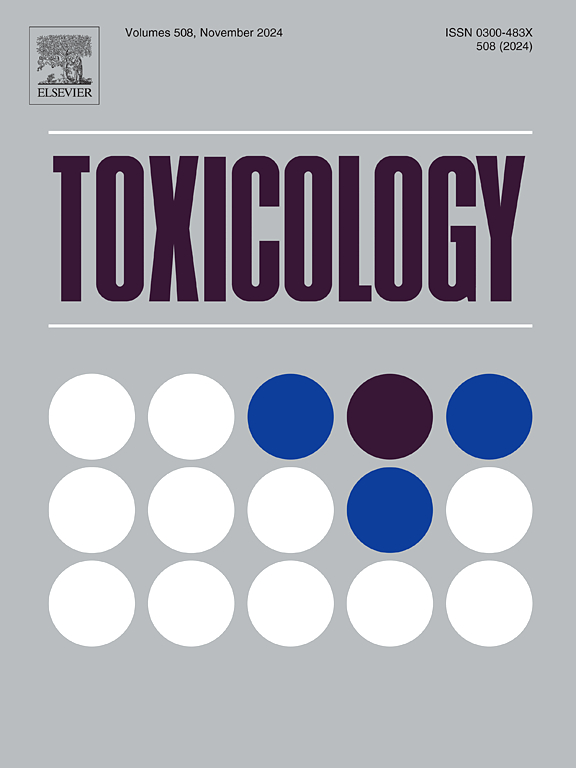Formyl peptide receptor 2 (FPR2) mediates cisplatin-induced cochlear inflammation and hair cell apoptosis
IF 4.6
3区 医学
Q1 PHARMACOLOGY & PHARMACY
引用次数: 0
Abstract
Despite its efficacy in cancer treatment, cisplatin is significantly limited by its debilitating ototoxicity and the poorly understood mechanisms underlying this adverse effect. This study investigates the role of formyl peptide receptor 2 (FPR2), a G protein-coupled receptor, in cisplatin-induced hearing loss. We demonstrate a significant upregulation of FPR2 in the cochlea of mice after cisplatin exposure, accompanied by profound hearing loss. Blocking FPR2 with either genetic (knockdown) or pharmacological (antagonist Boc-2, 50 µg/kg) strategies mitigates cisplatin-induced hearing impairment. Our in vivo experiments indicate that intraperitoneal injection of Boc-2 substantially alleviated the increase in auditory brainstem response (ABR) thresholds induced by cisplatin in mice. Mechanistically, FPR2 directly activates ERK1/2 and NF-κB signaling pathways, triggering a pro-inflammatory cytokine storm and subsequent hair cell apoptosis in the cochlea. Furthermore, FPR2 inhibition substantially attenuates cisplatin-induced inflammatory factor release and hair cell death. These findings identify FPR2 as a novel mediator of cisplatin-induced ototoxicity, suggesting its potential as a therapeutic target for preventing hearing loss in cancer patients.
甲酰基肽受体2 (FPR2)介导顺铂诱导耳蜗炎症和毛细胞凋亡。
尽管顺铂在癌症治疗中有疗效,但由于其使人衰弱的耳毒性和对这种不良反应的机制知之甚少,它受到了很大的限制。本研究探讨G蛋白偶联受体甲酰基肽受体2 (FPR2)在顺铂诱导的听力损失中的作用。我们证明了顺铂暴露后小鼠耳蜗中FPR2的显著上调,并伴有严重的听力损失。通过基因(敲低)或药理学(拮抗剂Boc-2, 50µg/kg)阻断FPR2可减轻顺铂诱导的听力损伤。我们的体内实验表明,腹腔注射Boc-2可显著缓解顺铂引起的小鼠听觉脑干反应(ABR)阈值的升高。在机制上,FPR2直接激活ERK1/2和NF-κB信号通路,引发耳蜗促炎细胞因子风暴和随后的毛细胞凋亡。此外,FPR2抑制显著减弱顺铂诱导的炎症因子释放和毛细胞死亡。这些发现表明FPR2是顺铂诱导耳毒性的一种新的介质,这表明它有可能成为预防癌症患者听力损失的治疗靶点。
本文章由计算机程序翻译,如有差异,请以英文原文为准。
求助全文
约1分钟内获得全文
求助全文
来源期刊

Toxicology
医学-毒理学
CiteScore
7.80
自引率
4.40%
发文量
222
审稿时长
23 days
期刊介绍:
Toxicology is an international, peer-reviewed journal that publishes only the highest quality original scientific research and critical reviews describing hypothesis-based investigations into mechanisms of toxicity associated with exposures to xenobiotic chemicals, particularly as it relates to human health. In this respect "mechanisms" is defined on both the macro (e.g. physiological, biological, kinetic, species, sex, etc.) and molecular (genomic, transcriptomic, metabolic, etc.) scale. Emphasis is placed on findings that identify novel hazards and that can be extrapolated to exposures and mechanisms that are relevant to estimating human risk. Toxicology also publishes brief communications, personal commentaries and opinion articles, as well as concise expert reviews on contemporary topics. All research and review articles published in Toxicology are subject to rigorous peer review. Authors are asked to contact the Editor-in-Chief prior to submitting review articles or commentaries for consideration for publication in Toxicology.
 求助内容:
求助内容: 应助结果提醒方式:
应助结果提醒方式:


